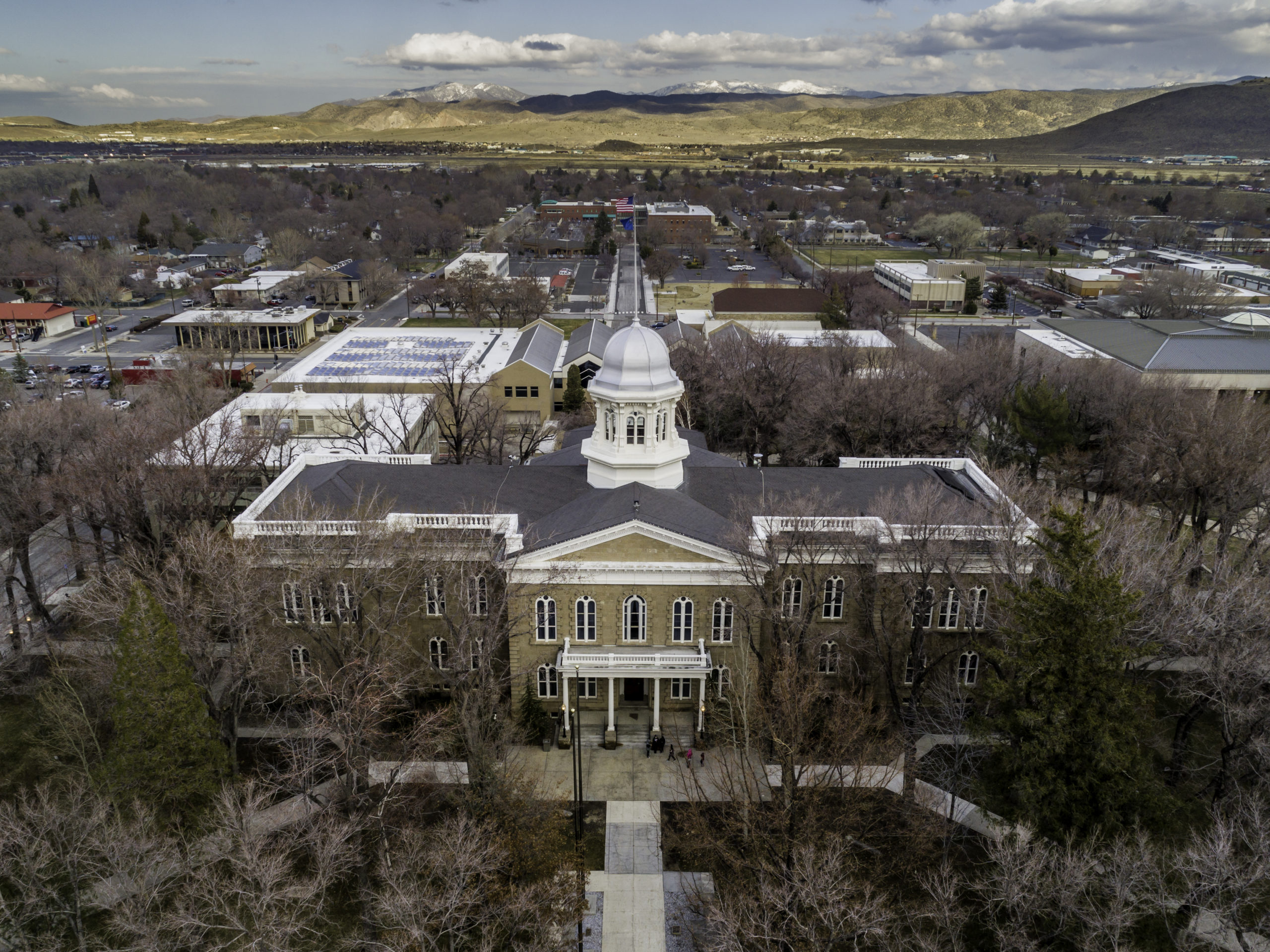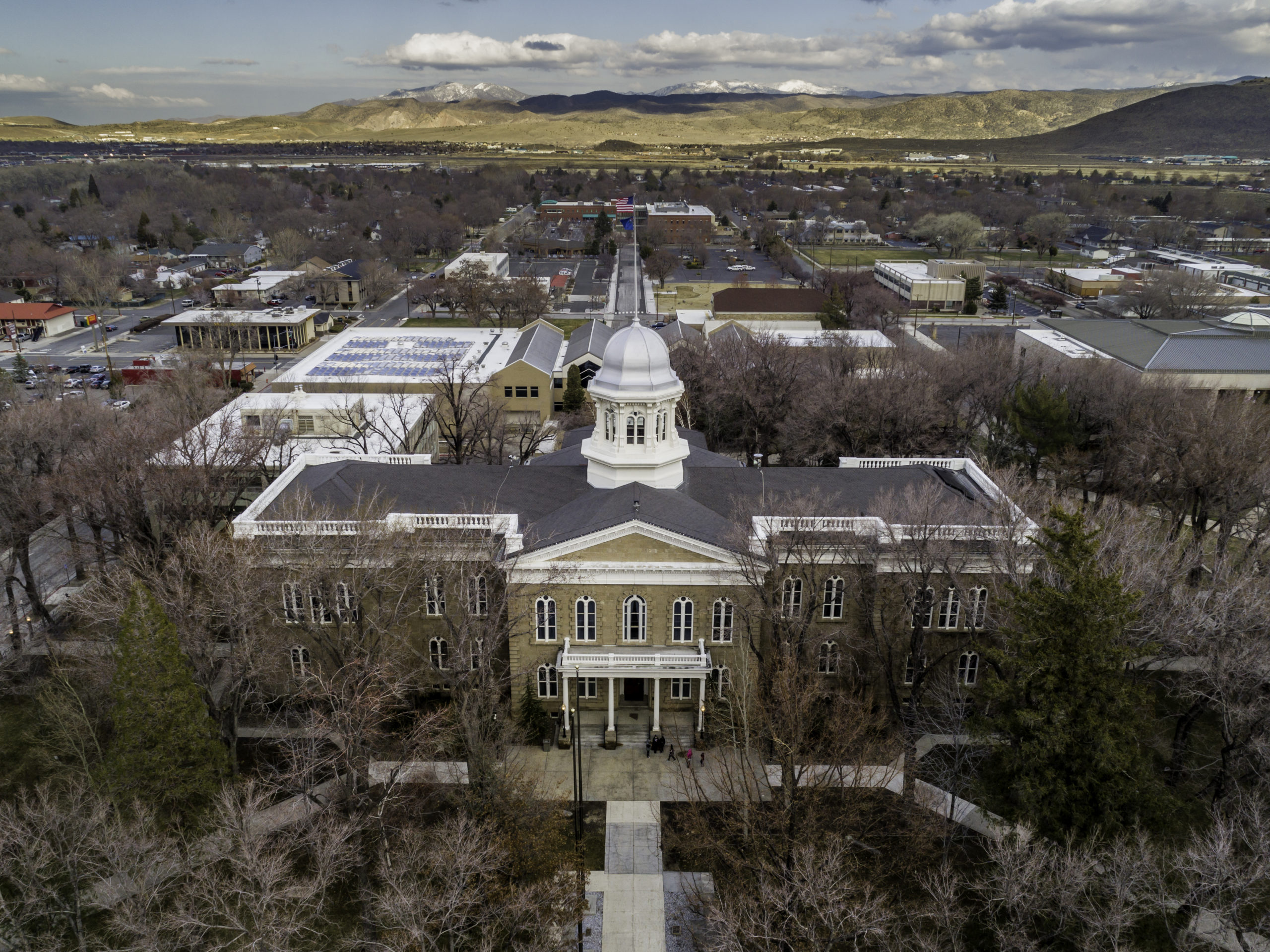Nevada Prosecutors Are Standing in the Way of Abolishing the Death Penalty
Time is running out for the state Senate to advance a bill repealing the death penalty. Two influential Democratic senators also work as prosecutors, and the state’s DA association is fighting the reform.
Daniel Nichanian | May 7, 2021


This article originally appeared on The Appeal, which hosted The Political Report project.
Time is running out for the state Senate to advance a bill repealing the death penalty. Two influential Democratic senators also work as prosecutors, and the state’s DA association is fighting the reform.
Nevada, a state where district attorneys are fond of death sentences, is close to repealing capital punishment. When the Assembly passed a bill to abolish the death penalty in April, the chamber’s Democrats, who hold the majority, all voted in its favor, sending it to the Democrat-controlled Senate.
But a pair of Democratic senators, both of whom work as prosecutors when the legislature is not in session, may derail the effort. Nicole Cannizzaro is the Senate majority leader and has not committed to bringing forward the legislation, Assembly Bill 395. Melanie Scheible leads the Judiciary Committee, which has yet to hold a hearing or vote on the bill. The clock is ticking; the bill would need to pass the committee by next week, and the entire legislative session is winding down at the end of May.
Cannizzaro and Scheible are deputy district attorneys in the office of Clark County (Las Vegas) DA Steve Wolfson. Wolfson is a staunch foe of death penalty abolition who has sought death sentences in dozens of cases over his tenure, testified against AB 395, and is trying to schedule an execution just as this debate is coming to a head in the state Capitol.
“There’s an apparent conflict of interest, where the people that are making laws are enforcing laws,” Scott Coffee, a longtime public defender in Clark County who has worked on many capital cases, told The Appeal: Political Report. “Walking into that office after repealing the death penalty would be kind of like walking into the Red Sox dugout after trading Babe Ruth.” Neither Cannizzaro nor Scheible responded to requests for comment for this article.
The Nevada Association of District Attorneys, the state’s prosecutorial lobby, has been urging lawmakers to reject AB 395. Its president, Elko County DA Tyler Ingram, testified against abolishing the death penalty in the Assembly. “Throughout Nevada, prosecutors make the decision to seek the death penalty sparingly and judiciously,” Ingram told the Assembly. “It is reserved for the worst of the worst.”
But Nevada prosecutors have pursued the death penalty so frequently that they have helped make their state an outlier even by national standards.
Nevada has about 70 people on death row. Relative to the state’s population, that is the second-highest number in the country, behind Alabama. The numbers are “completely out of whack with the rest of the country and the rest of the free world, to be quite honest,” said Coffee, who blames a “culture” where DAs seek death sentences “in volume because it’s always been sought in volume.”
And state prosecutors have filed notices seeking death sentences in dozens of additional cases—but have either failed to secure them or else dropped their quest. Critics say prosecutors use these notices to gain leverage in plea negotiations.
The Nevada District Attorneys Association, contacted through its president and through two registered lobbyists, did not respond to requests for comment.
For Assemblymember Steve Yeager a Democrat who is a chief sponsor of AB 395, the death penalty gives prosecutors an alarming degree of discretion over someone’s life.
Yeager worked as a public defender in Clark County for eight years, going up against the county’s prosecutors. He says he already opposed the death penalty before that experience, but his resolve hardened when he witnessed the “unjustifiable differences” in how prosecutors handled similar cases. A disproportionate share of the people on Nevada’s death row are Black, and Yeager says last summer’s protests for racial justice have helped push this bill further than similar measures have gone in the past.
AB 395, as currently drafted, would commute the sentences of people on Nevada’s death row to life without the possibility of parole—in addition to barring future death sentences.
Nevada has not executed anyone since 2006, in part due to its difficulties obtaining execution drugs from manufacturers. But abolition advocates point to the resurgence of federal executions under President Donald Trump to warn that a pause could end at any moment.
Wolfson, the Clark County DA, is looking to break Nevada’s stretch by trying to schedule an execution for Zane Michael Floyd, who was sentenced to death in 2000 for the murders of four people. There is a hearing scheduled in state court for next week, shortly before the deadline by which the Judiciary Committee must act on AB 395, though a federal judge said on Thursday that he may intervene to block the proceedings.
Holly Welborn, policy director at the ACLU of Nevada and a member of the Nevada Coalition Against the Death Penalty, says the DAs’ involvement in the death penalty debate this year mirrors how they’ve torpedoed past criminal justice reform proposals. She regrets that lawmakers let them have such sway in legislative proceedings.
“It’s almost like they have a veto, that everything has to be signed off by the DAs, by some law enforcement entity,” Welborn said. Referencing a 2019 omnibus reform bill that several DAs opposed that was weakened before its final passage, she added, “It seems that every change in a bill is at the request of law enforcement, who then still show up and oppose these measures.”
This dynamic has played out before, in ways strikingly similar to the current debate on the death penalty.
In 2019, the Assembly overwhelmingly passed legislation to limit civil asset forfeiture. Advocates who supported the bill called on Cannizzaro to allow a Senate vote on the bill, much like they are doing now with AB 395. But the bill never received a vote in the Senate.
The Nevada District Attorneys Association testified against that asset forfeiture bill in the Senate’s Judiciary Committee. This year, when lawmakers introduced a watered down version that also has yet to get a vote, the association testified against it again. The group has also been resisting a bill that would toughen use-of-force standards for police.
Throughout the country, DAs and their statewide associations play a similar role of adamantly fighting reform, but they are facing a reckoning in some states. Reform advocates in Nevada hope their state can follow suit. “This is something that we’re not tolerating anymore,” Wellborn said, describing renewed efforts by criminal justice reform advocates to expand whose voices are heard at the state Capitol.
Leslie Turner, an organizer with Mass Liberation, credits AB 395’s progress to community organizing. “We really focused on getting into impacted communities and empowering our own community members, reducing the stigma and shame about having been impacted by the criminal justice system,” she said. “And I think that that has created a lot of momentum around criminal justice reform in general.”
“There is a difference between the emotional satisfaction that comes from revenge, versus actual justice,” Turner added about the death penalty. “Justice to me is making sure that this doesn’t happen in the future. We’re having three or four mass shootings a week, because we never actually got to the root cause of why this was happening. … We just react over and over again. I think there’s just a mass refusal in the community to accept this anymore.”
Local elections have also added to the influence of public defenders, sparking new fault lines even within the Democratic Party. In addition to former public defender Yeager, the chief sponsor of AB 395 in the Senate—Democrat James Ohrenschall—works as a public defender in Clark County when the legislature is not in session.
Public defenders also secured a string of victories in judicial races in Clark County last year after running on promises to bring a decarceral outlook to the bench. In response, Wolfson called on the state to move away from electing its judges. Wolfson himself is up for re-election as DA in 2022.
The Nevada Democratic Party has faced broader turmoil this year. A slate aligned with the Democratic Socialists of America took over the leadership of the state party. And Judith Whitmer, the incoming state party chairperson, supports abolishing the death penalty.
Even if the Senate were to pass AB 395, though, Democratic Governor Steve Sisolak has tentatively indicated he may block the legislation. He said he would have a “hard time” supporting a bill that fully abolishes the death penalty.
Death penalty opponents remain hopeful that the state’s broad political transformations, combined with the reckoning brought about by protests and the nationwide tide against executions, can outweigh Nevada’s propensity for capital punishment.
Welborn invoked the anti-death penalty movement’s recent triumph in Virginia, another state that long embraced executions. “We know that the death penalty system is too broken to fix in the state of Nevada, and anywhere else in this country,” she said. “Virginia at one time had the highest rate of executions in the country. If they can do it, we certainly can do it here in Nevada.”


